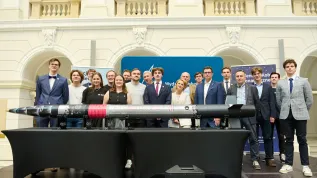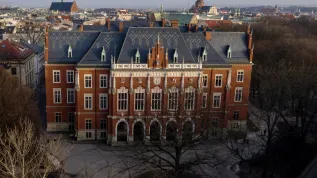
Prof. Joanna Pinińska of the University of Warsaw became a member of the Science and Technology Advisory Council appointed by the President of the European Commission, reported the Ministry of Science and Higher Education.
The Science and Technology Advisory Council is an independent and informal group of experts, who will provide scientific support to the political decision-making in the European Union. Fifteen council members represent academia, business and non-governmental organizations. They are specialists in various fields of the European Research Area, selected based on their academic achievements, experience and communication skills.
Prof. Joanna Pinińska is a geologist, head of the Department of Geomechanics at the Institute of Hydrogeology and Engineering Geology, Faculty of Geology, University of Warsaw. It belongs to the Helsinki Group at the European Commission, engaged in the promotion of women in science.
Other members of the council come from countries including Hungary, Italy, Germany, France, Israel, and Finland. They were selected by the President of the European Commission Jose Manuel Barroso in consultation with Prof. Anne Glover, appointed earlier this year Chief Scientific Adviser to the President of the European Commission. Her tasks include development of independent expertise in matters relating to science, technology and innovation, and promoting better transfer of knowledge from the scientific world to industry.
"Science and innovation are key drivers for European competitiveness, economic growth and the creation of new jobs. This Advisory Council will focus on science and technology related topics that are of cross-cutting nature, with a clear societal dimension. It will identify the issues of value where science, research and innovation can contribute to support future development in Europe" - Barroso justified the creation of a new body.
The main aim of the new body is to advise the President of the European Commission. Together, they will shape a European society that embraces innovation, and identify opportunities and risks stemming from scientific and technological progress. The council will also shape the communication strategy in order to foster an informed societal debate and ensure that Europe does not “miss the boat” and remains a global leader in cutting-edge technologies.
The new council, along with other key projects to support the development of research and innovation (such as the Innovation Union, the European Research Area and Horizon 2020) will contribute to smart, sustainable and inclusive growth for Europe.
PAP - Science and Scholarship in Poland
zan/ tot/ bk/ mrt/
tr. RL













